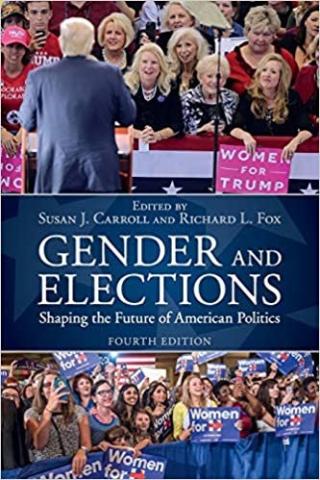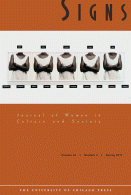Gender and Elections: Shaping the Future of American Politics, 4th Edition
Eds. Susan J. Carroll, CAWP, Rutgers University and Richard L. Fox, Loyola Marymount University
Cambridge University Press, 2018 Fourth Edition, 319 pagesBookResearchCAWP ScholarCandidates and CampaignsPolitical PartiesWomen Voters and the Gender GapGender and Race/EthnicityFederal ExecutiveCongressStatewide ExecutiveState LegislatureWomen Candidates in Election 2018: One Year from Election Day
by Kelly Dittmar, Ph.D.
Fact SheetResearchCAWP ScholarA Closer LookCandidates and CampaignsStatewide ExecutiveCongressBlack Women in American Politics: 2017 Status Update
By Kelly Dittmar, Ph.D.
ReportResearchCAWP ScholarGender and Race/EthnicityCongressStatewide ExecutiveState LegislatureLocalWomen Running in 2017: Assessing NJ and VA State Legislative Elections
by Kelly Dittmar, Ph.D.
Fact SheetResearchCAWP ScholarA Closer LookPolitical PartiesCandidates and CampaignsState LegislatureRepresentation Matters: Women in the U.S. Congress
by Kelly Dittmar, Kira Sanbonmatsu, Susan J. Carroll, Debbie Walsh, and Catherine Wineinger
Center for American Women and Politics, Eagleton Institute of Politics, Rutgers, The State University of New Jersey, 2017, 56 pages.ReportResearchCAWP ScholarPolitical PartiesGender and Race/EthnicityImpact of Women Public OfficialsCongressFinding Gender in Election 2016
by Kelly Dittmar, Ph.D.
Published by the Barbara Lee Family Foundation (BLFF) and the Center for American Women and Politics (CAWP)ReportResearchCandidates and CampaignsFederal ExecutiveFinding Gender in Election 2016: Highlights
by Kelly Dittmar, Ph.D.
Published by the Barbara Lee Family Foundation (BLFF) and the Center for American Women and Politics (CAWP)ReportResearchCandidates and CampaignsFederal ExecutiveWomen in Congress: Leadership Roles and Committee Chairs
Fact SheetCongressAsk a Feminist: A Conversation with Susan J. Carroll on Gender and Electoral Politics
ArticleResearchCAWP ScholarCandidates and CampaignsCandidates Matter: Gender Differences in Election 2016
by Kelly Dittmar, Ph.D.
Fact SheetResearchCAWP ScholarA Closer LookPolitical PartiesCandidates and CampaignsCandidate RecruitmentGender and Race/EthnicityState LegislatureStatewide ExecutiveCongress
Research and Scholarship
CAWP research and research by CAWP scholars that addresses emerging questions about American women's political participation.









